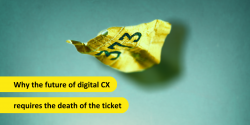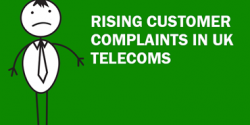Are brands finally getting social customer service?

New research from Social Bakers seems to point to a major step forward in social customer service, with more and more companies answering questions posed to them on Facebook and Twitter. Brands have more than doubled their response rates between Q2 2012 and Q2 2013, up from answering 30% of questions to 62%. Back in 2011 the figure was just 5%.
Airlines led the way, answering 79% of queries, followed by finance (78%) and telecoms (75%). Speed of response is also improving, with airline KLM achieving an average response time of 45 minutes and answering 97.21% of questions.
However the headline figures mask three key areas of concern:
Firstly, many response times are still incredibly long. In the UK, they average 864 minutes – over 14 hours. The whole point of social media is that customers expect an instant (or near instant) answer. While some companies are responding in less than 30 minutes, there’s a huge difference between best and worst.
Secondly, 38% of questions aren’t being answered. That’s still the equivalent of ignoring nearly four in ten of your customers. Compare these metrics against other channels (such as telephone, email and the web) and social media lags behind.
Finally, the research just focuses on the number of questions answered – and not whether it actually satisfied the customer concerned. While in this case it is impossible to see whether queries were resolved, many companies have been castigated for responding with overly scripted robotic tweets to customers on social media. While this does provide an answer and allow SLAs to be met, it doesn’t solve underlying problems and will force consumers to use other channels.
At Eptica we see social customer service as a multi-stage journey. For it to be successful companies need to integrate it with their overall customer experience strategy, rather than treating it in isolation. The eight steps are:
- Stem the flow of high volume, low value contact by extending web self-service to your Facebook page
- Make it easy for customers to champion your answers on social media by including Like and Retweet button
- Link your customer service pages to social media, so that people can ask questions of the wider community if they can’t immediately find what they are looking for
- Deploy the same customer service knowledgebase across all channels to deliver a consistent, high quality experience to everyone
- Monitor social media to listen for questions – even if they are not directly addressed to your customer service team
- Incorporate incoming interactions (such as tweets) into the same workflow as other channels such as email to avoid creating silos
- Enable enterprise wide conversations by making it easy to forward social media questions on within an organisation so that they are always answered by the best person
- Analyse your performance through multichannel analytics – ensuring you have the right metrics in place to measure outcomes and satisfaction rather than simple volume of questions answered.
Social media greatly increases the complexity and amount of questions that companies receive. Rather than simply ignoring or providing stock responses they need to put in place the processes, training and resources to deepen interaction with consumers and deliver the best possible customer experience.







Comments